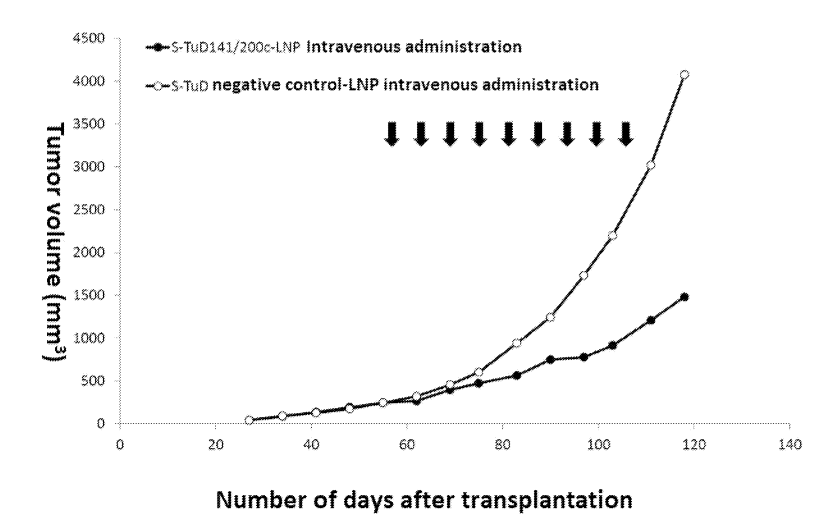Advantages
Current Stage and Key Data
Partnering Model
- We are seeking an exclusive license partner for the improved anti-miR-200 S-TuD.
- Collaborative development of LNP inclusion bodies, ligand conjugates, etc. is also possible.
Background and Technology
miRNAs form gene regulatory networks by controlling a large number of target genes, and play important roles in many biological phenomena. High expression of certain miRNAs has also been confirmed in cancer, and miRNA inhibitors such as miRNA antisense (Antagomir) have been developed. S-TuD has been reported to show higher inhibitory activity than Antagomir and others. We developed S-TuD with improved stability and activity by designing artificial nucleic acids and linkers.
The miR-200 family (miR-200a, miR-200b, miR-200c, miR-141, miR-429) is known to suppress epithelial-mesenchymal transition (EMT) in tumor cells and has been considered to be a tumor suppressor. On the other hand, we have revealed that epithelial tumor cells strongly contribute to tumorigenic activity. Furthermore, we inhibited the miR-200 family using an improved S-TuD designed to target the miR-200 family. As a result, we found that the population equilibrium of tumor cells was shifted toward the mesenchymal lineage, effectively suppressing the growth of primary tumors.
Principal Investigator
Hideo IBA (Medical Mycology Research Center, Chiba University)
Patents
- Japan: Patent No. 7306653, USA: Patent No. 11479769, Europe/China: Under examination.
Project.BK-04972




